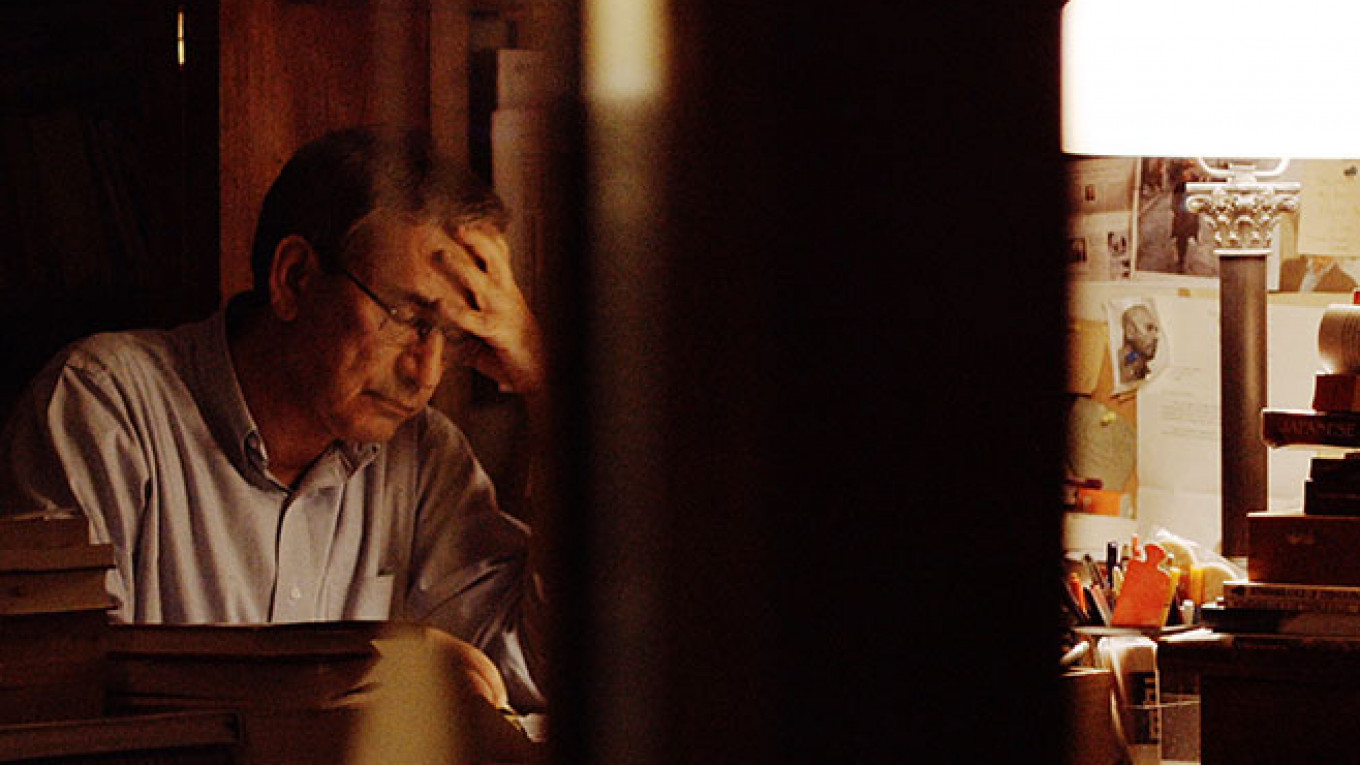Over the last seven years, the Beat Film Festival has grown from a series of low-key events to a large festival that lasts more than a week. Originally envisioned as a documentary film festival that focused on music, this year the festival introduces several new programs — "Art" and "Millennials." The former is devoted to documentaries about prominent figures in the arts, including photographer Robert Mapplethorpe and writer John Berger, while the latter deals with diverse themes from African musicians to Georgian skaters. We selected several not-to-miss premieres from the festival for your viewing pleasure.
We'll be in the front row at two screenings that are part of the Future of the World Forum organized by the Strelka Institute and the British Council. Both screenings will be preceded by talks with directors and critics:
"Innocence of Memories," Grant Gee's film devoted to an unusual museum in Istanbul opened by Orhan Pamuk, Turkey's Nobel laureate for Literature. The museum is called "The Museum of Innocence" and is devoted to a fictional doomed love story that took place in the 1970s in Istanbul as described in Pamuk's eponymous novel. The film talks about the museum, the writer and the city.
"Bitter Lake," a film by Adam Curtis about the last 50 years of Afghan history and Western and Soviet efforts to change the country.
And another top pick is "Becoming Zlatan," a biopic about the legendary Swedish soccer player Zlatan Ibrahimovic from his debut with the Malmö FF team up to his most successful years with Juventus.
The films are being shown at a number of venues about the city. For the full schedule and more information, see their schedule.
A Message from The Moscow Times:
Dear readers,
We are facing unprecedented challenges. Russia's Prosecutor General's Office has designated The Moscow Times as an "undesirable" organization, criminalizing our work and putting our staff at risk of prosecution. This follows our earlier unjust labeling as a "foreign agent."
These actions are direct attempts to silence independent journalism in Russia. The authorities claim our work "discredits the decisions of the Russian leadership." We see things differently: we strive to provide accurate, unbiased reporting on Russia.
We, the journalists of The Moscow Times, refuse to be silenced. But to continue our work, we need your help.
Your support, no matter how small, makes a world of difference. If you can, please support us monthly starting from just $2. It's quick to set up, and every contribution makes a significant impact.
By supporting The Moscow Times, you're defending open, independent journalism in the face of repression. Thank you for standing with us.
Remind me later.






